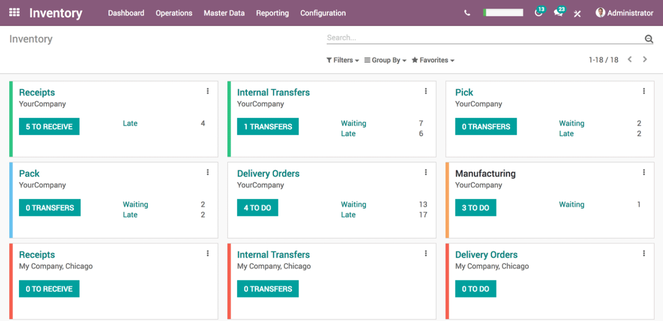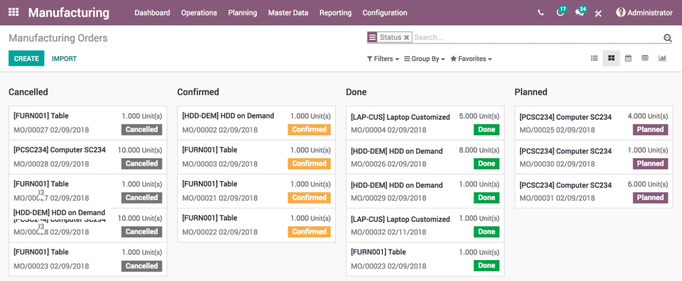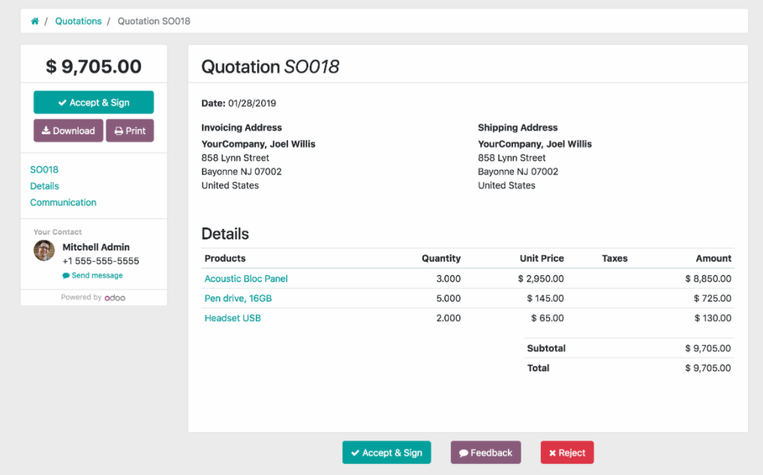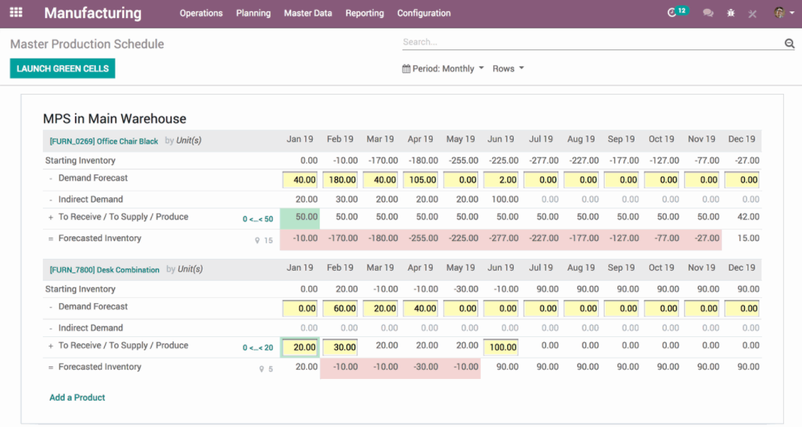The global manufacturing realm has changed drastically over the past couple of decades. China has outmaneuvered the US in manufacturing supremacy, while some countries are establishing themselves as notable players.
To stay abreast and remain competitive within the industry, companies must adopt and deploy new strategies to cut costs, provide excellent products, streamline operations, and improve customer experience.
One way to achieve that is by having a robust ERP system. By deploying ERP, manufacturers can simplify management that used to be complicated and tedious. Automation became a game-changer that allowed companies to shine through the unpredictable market conditions.
Indeed, there is no tool more critical than a process manufacturing software that handles all phases of the production and delivery to customers.
To begin, let’s identify process manufacturing first and how ERP plays a significant role in it. Process manufacturing is complex because it involves combining raw materials such as food, beverages, gasoline, oil, pharmaceuticals, or plastics to produce another product.
The process often requires chemical conversion, using heat, pressure, or time to change the composition and state of the product. It relies on the efficiency and flow of sequential steps, requiring completion of one step leading to the next; thus, there can be no errors.
One cannot reverse the manufacturing process, meaning you cannot disassemble finished products back to their former form, nor constituent parts. Thus, it is essential to have a reliable system that can trace, schedule, and run the process to ensure peak operational efficiency.
ERP Modules In Process Manufacturing
What you might be wondering now is what types of ERP modules are essential to your process manufacturing success? Here are the top ones we recommend:

Inventory Control
All manufacturers maintain an inventory of items they sell. These inventories must be controlled and used optimally.
Companies must undertake stringent control in process manufacturing since they are dealing with a lot of raw materials.
Another concern is that not every finished good gets sold and goes to waste if not properly documented, managed, or disposed of.
Companies need to have a suitable inventory management module that tracks raw materials, finished in-store goods to help initiate processing of orders based on forecasts, even those with unique requirements.
It should also allow manufacturers to get a view of unneeded or obsolete inventory and dispose of them while it still has value. The module should have superior control of materials and locations to ease movement to and from production.

Operations and Production Management
To stay thriving in the competitive online marketplace, companies need to meet customer demand at all times.
They must be ready and able to fulfill orders when a customer places them at an agreed, timely schedule.
Operations management is the core of a manufacturing company.
People and inventory components need to be available when customers want a delivery. With that, companies also need to ensure that finances are ready to pay suppliers and employees.
The ERP manufacturing module takes care of this, ensuring the availability of material components, cash flow, and workforce to meet desired results.

Sales and Order Management
Keeping track of orders is essential in every process manufacturing business; that’s why a manufacturing requirements planning module is needed to document orders efficiently.
Such allows companies to react accordingly – signal operations to schedule work or retract production – based on deflation and changes in orders, to manage risks.
Focus is one of the ERP modules that can serve this purpose and records transactions with order demand or sales links for easy reference, tracking, and intelligent reporting. It doesn’t matter what the nature of the sales order is. It can be a repeat order, or one-time, unique demands.
HR Module
Although automation is already in place for most companies, there is no denying that there is still a requirement for manual skills and labor to complete the manufacturing lifecycle.
Companies need to ensure that these employees get paid on time and receive benefits accordingly to motivate an efficient workplace.
HR modules such as IQMS facilitate that and more – from tracking, analyzing, and predicting employee skills to ensure proper assignment to tasks they are more qualified for.
It also controls payroll rates and benefit packages, providing management a comprehensive view of the whole employee journey, so they know if an employee is due for an appraisal, a raise, or a promotion.
With the quality module, they will be able to allocate resources for training and certification needed to perform tasks better. Management can also track if an employee still lacks the required training for work, so there is no risk of them being assigned to projects that they don’t have training for.
Customer Relationship Management
The customer relationship management module is also vital in any business, whether in process manufacturing, hotel services, or shipping.
Such is an essential tool to track communications between manufacturers and customers and can be in person or via a phone call.
This module allows companies to understand their customers better, to be able to craft effective sales pitches and compelling campaigns and promotions. The CRM also allows tracking of campaign results and effectiveness.
Vendor Management
This module allows manufacturers to document quotations from suppliers, as well as keep track of quality standards certifications. Data stored in the system enables companies to rate suppliers and improve transactions and quotation management in the future.
Artificial Intelligence (AI)
Business Intelligence tools are not enough for manufacturing companies to thrive. They need more advanced technologies to handle operations with complete and transparent efficiency and reduced errors.
An Artificial intelligence (AI)-enabled ERP system intricately tracks every transaction and audits and produces insights necessary for better decision-making while imposing control on all aspects of your business.
You may configure the ERP in such a way that when a particular event happens, it can immediately act on it without the need for approval, sort of like a default mechanism, responding to stimuli. That way, companies can save time and money and be more efficient and productive, resulting in a happier customer base.

Engineering Management
Without well-oiled, maintained machines, which serve as the backbone of process manufacturing companies.
Once in a while, equipment breaks down and needs maintenance from time to time. What do you do when one component breaks, and there are no available replacement materials during a peak season?
This is where an engineering module helps. Engineers can develop alternate routes when usual processes are unavailable or if machines are running beyond capacity so that companies can still meet customer demand without creating a negative impact.
These unique characteristics of process manufacturing make it difficult to manage, but it doesn’t mean it can’t be done.
You have to know the right ERP system to use and the appropriate modules to incorporate for your unique business. Odoo, the number 1 open-ERP system gives you this power.
Aside from being able to solve the challenges mentioned earlier for process manufacturing, because of its agnostic features and ease of integration and interoperability, Odoo provides other large-scale benefits.
With process manufacturing, you typically can no longer disassemble finished products and recuperate components.
With Odoo, you can do that, so there is less wastage and more profit. You have a clear view of your whole planning scheme and schedule production according to demand and predictions, taking into consideration seasonal fluctuations and unforeseeable futures.
Companies see assembly lines and the Bill of Materials (BOM) within another to allow the manufacturing of components in another set of BOMs.
You gain control of production and productivity and have real-time Equipment Efficiency (OEE) reports.
Everything is easily accessible, and you get access to dynamic reports – from costing to traceability, performance – having these views allows decision-makers to make invaluable decisions resulting in growth, increased productivity, reduced costs, and maximized efficiencies across the production process.
That’s the Odoo promise and more. Compared to SAP Business One or other software, Odoo is a much cheaper choice since it’s free if you manage your server.
The online version requires a pay-per-user approach, which is still a lot for economical, especially for small and medium-sized businesses. With a very affordable price tag, and a whole slew of functionality, how can you lose?
Process manufacturing requires precise requirements, and ERP plays a significant role in providing that. With the right ERP fine-tuned to your business, your company can satisfy customer demands and grow exponentially.